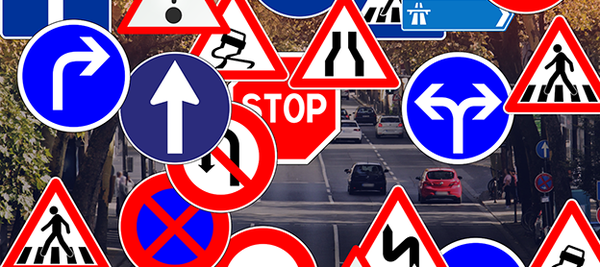A hybrid approach to AI
At the moment, AI methods are developed mainly on the basis of data. In the training phase, no expert intervention takes place and the AI is optimised exclusively through data in a continuous process. This approach has two significant weaknesses: Enormous amounts of data are needed for training and validation, which are time-consuming and expensive to collect and process. In addition, data-based AI functions are often black box models whose decision making cannot always be directly reconstructed.
Previous research approaches to solving these problems have focused on optimising the data necessary for training and validating AI. KI Wissen approaches the challenge in a new way and explores how existing knowledge relevant to the traffic context – in the form of traffic rules, mathematical-physical facts and also social norms – can be integrated into AI systems. By using this hybrid approach, i.e. the linking of data-based procedures with knowledge-based methods, the project is completely redefining the basis for the training and validation of AI functions. It now includes not only data, but information, i.e. data and knowledge. The further development from data-based to information-based AI carried out in the project addresses central challenges on the way to autonomous driving: the generalisation of AI to phenomena with a small data basis, the increase in the stability of the trained AI to disturbances in the data, the data efficiency, the plausibility check and the validation of AI-supported functions as well as the increase in functional quality.



